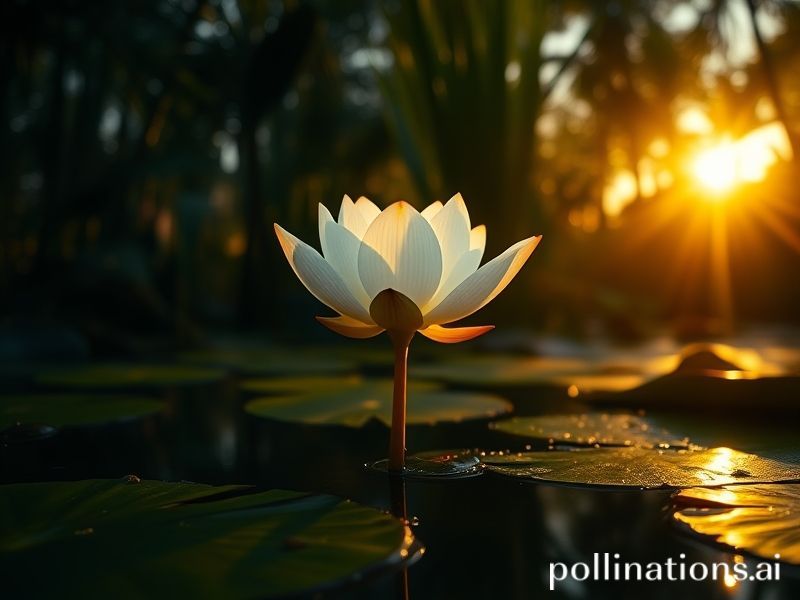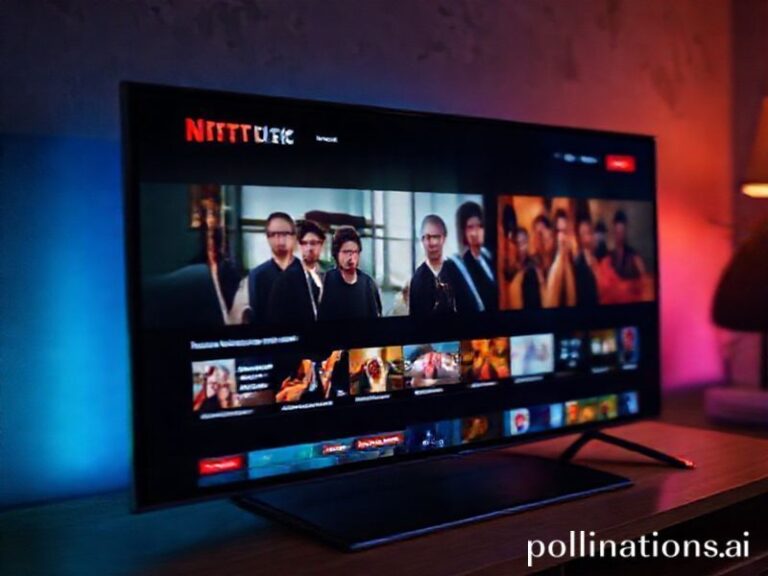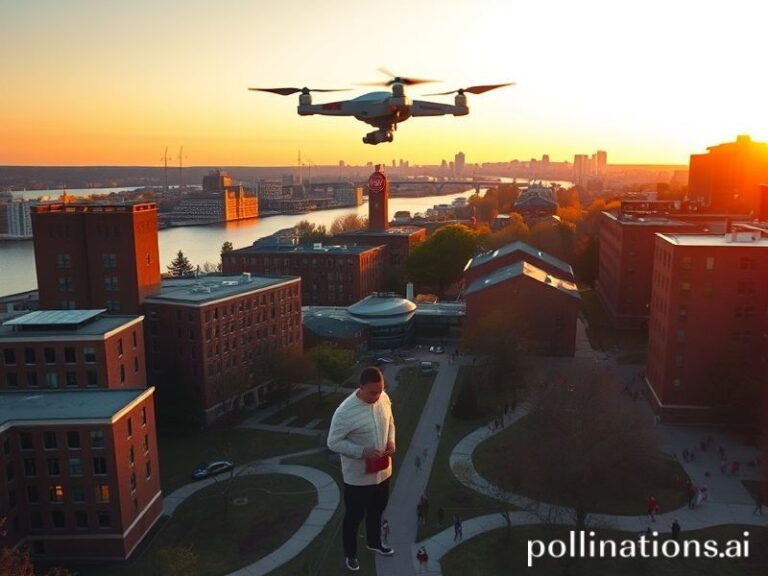White Lotus Season 3: Thailand’s Latest Import Is First-World Guilt, Subtitled in 23 Languages
White Lotus Season 3: A Bougainvillea-Splattered Mirror Held Up to a Planet on Fire
By our Southeast Asia Bureau Chief, still coughing up tropical humidity and moral ambivalence
BANGKOK—Mike White’s The White Lotus has finally checked into Thailand, dragging its monogrammed Rimowa of first-world guilt through the jasmine-scented lobby of a fictional Koh Samui resort. The series that once skewered Hawaiian wellness grifters and Sicilian sex tourists has now arrived in the one country whose tourism slogan is literally “Amazing,” as if to dare the viewer to find the fine print. Across six time zones and four currencies, audiences are binge-watching the same slow-motion collision of privilege and karma, each episode subtitled in twenty-three languages like a UNESCO declaration on hypocrisy.
From Berlin to Bogotá, the show has become a shared guilty pleasure—an upscale televised glühwein for people who pretend they don’t watch television. Europeans recognize their own pension-proxy offspring in the gap-year backpackers; Gulfstreamed Americans see their tax bracket’s id rendered in SPF 50; the Chinese middle class, still nursing Covid-era passport withdrawal, live vicariously through characters who can still afford to be rude to immigration officers. In short, the Lotus has become globalization’s prestige soap opera, the Bridgerton of late-capitalist doom.
The choice of Thailand is geopolitically delicious. Once marketed as “the Switzerland of Asia” for its Cold-War neutrality, the kingdom now serves as the continent’s Airbnb: everyone crashes for cheap, leaves wet towels on the floor, and ghosts before checkout. Bangkok’s real-life luxury hotels report a 30-percent spike in bookings since the trailer dropped, proving that satire doubles as advertising—nothing sells suffering like a panoramic drone shot of an infinity pool. Meanwhile, local tourism boards scramble to assure Chinese investors that the fictional murders won’t affect actual murders, I mean, arrivals.
White’s genius lies in exporting American neuroses with the efficiency of an arms dealer. The tech bros preaching chakra alignment while Venmoing sex workers are instantly legible from Lagos to Lima; the heiress who weeps about climate change between private-jet hops speaks fluent global elite. What’s new this season is the Buddhist wrapper—monks in saffron robes gliding past guests Googling “how to be present.” The irony, of course, is that enlightenment now costs $4,000 a night and comes with a complimentary sound-bath playlist on Spotify.
Internationally, the Lotus functions like a Rorschach inkblot dipped in SPF reef-safe sunscreen. In South Korea, viewers debate whether the show glamorizes or condemns the ultra-rich; in India, it’s trending under the hashtag #VisaWives; in Argentina, inflation-battered Twitter users meme the resort bill as “one week equals one year’s wages.” Even Moscow’s sanctioned oligarchs reportedly pirate it, pausing only to sigh at the simpler days when money could still buy you an entire island instead of just a villa with a view of someone else’s villa.
The broader significance? Picture the planet as a giant Club Med where the ice sculptures are melting faster than the cocktails. The White Lotus is less escapism than a travel advisory: paradise is fully booked, the staff are plotting revolution, and the Wi-Fi is throttled unless you upgrade to Platinum Karma. Each death onscreen is a gentle reminder that somewhere offscreen, coral reefs are also dying—only they don’t get a haunting cover of “The Impression That I Get.”
As the final credits roll across continents, the takeaway is unanimous: everyone is the villain of someone else’s vacation. Whether you’re a German sustainability consultant offsetting your carbon with vegan schnitzel or a Filipino housekeeper smiling through gritted molars, the global economy has reserved you a room. Checkout is mandatory; apology gifts are tax-deductible.
So raise a lukewarm Singha to the human condition: sunburned, spiritually bankrupt, but at least beautifully lit for the drone shot. And remember—if you can’t spot the toxic tourist in the trailer, it’s probably you.







